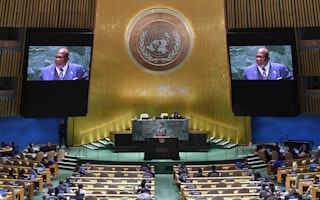The Devastating Impact of the Economic Crisis on Labor Migration
The recent economic crisis has had a severe impact on the lives of labor migrants and the economies of their home countries, which are reliant on remittances. While labor migrants normally subsist in living and working conditions that violate their basic human rights, they are worsened during times of economic downturn. Labor migrants are statistically the first to become unemployed and are subjected to an increase in ethnic violence. Yet since remittances are essential to the labor migrants’ home economies and the livelihoods of their families, migrants persist in often abhorrent conditions.
A panel of experts recently assembled for a discussion of the havoc that the economic crisis is wreaking on these people’s lives. Richard Ericson, professor of economics and chair of the Department of Economics at East Carolina University, presented the current economic situation in Russia, while Rachel Denber, deputy director of the Europe and Central Asia Division at Human Rights Watch, discussed the findings of a recent Human Rights Watch report on the exploitation of migrant construction workers in Russia. Michael Hall, Regional Director for the Caucasus and Central Asia at the Open Society Institute, focused on the impact of the economic crisis on the lives of Tajik labor migrants and the Tajik economy.
Listen above.
(Note: The audio for this event has been edited.)


